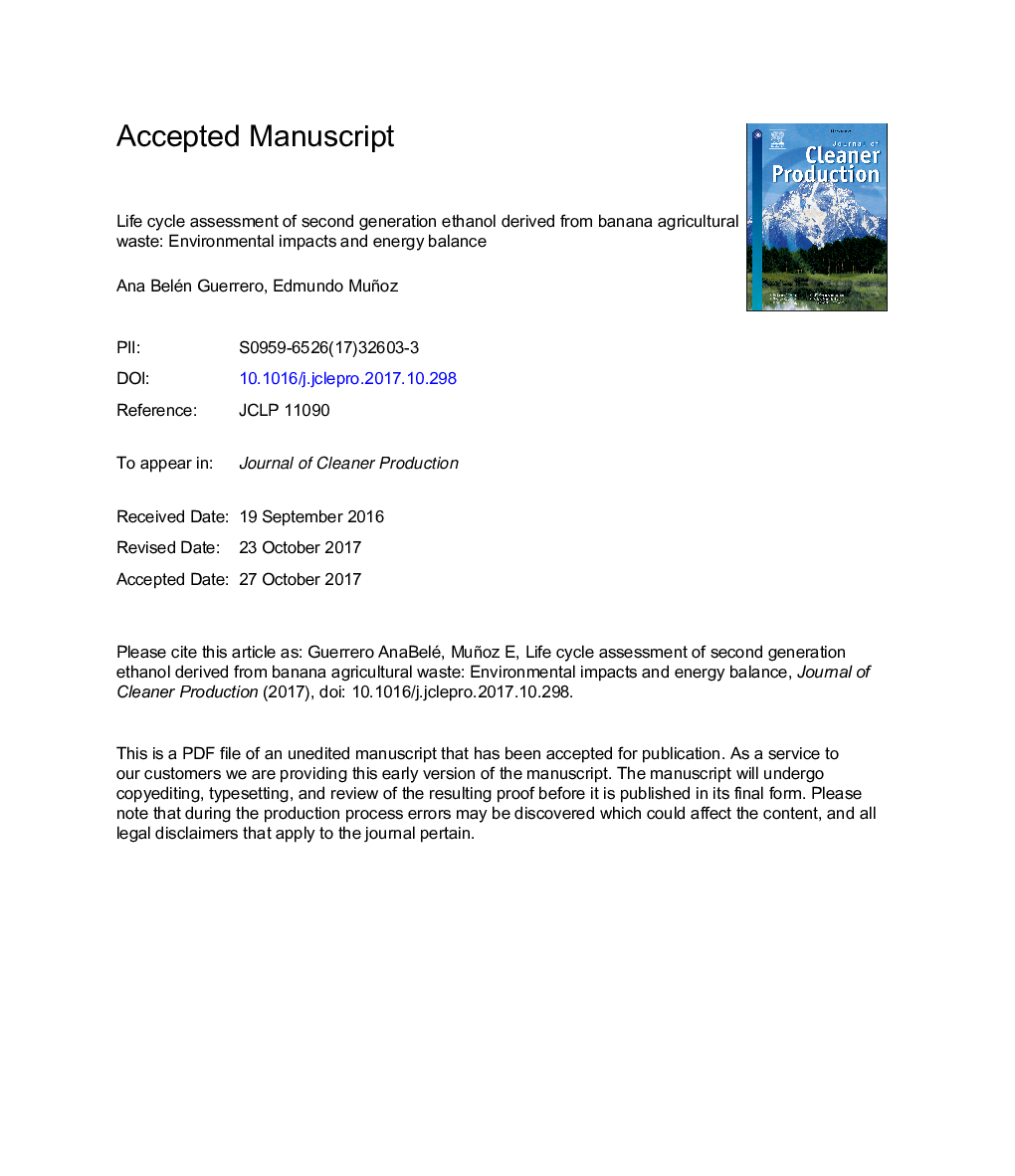| کد مقاله | کد نشریه | سال انتشار | مقاله انگلیسی | نسخه تمام متن |
|---|---|---|---|---|
| 8099576 | 1522079 | 2018 | 29 صفحه PDF | دانلود رایگان |
عنوان انگلیسی مقاله ISI
Life cycle assessment of second generation ethanol derived from banana agricultural waste: Environmental impacts and energy balance
ترجمه فارسی عنوان
ارزیابی چرخه حیات اتانول نسل دوم مشتق شده از ضایعات کشاورزی موز: اثرات زیست محیطی و تعادل انرژی
دانلود مقاله + سفارش ترجمه
دانلود مقاله ISI انگلیسی
رایگان برای ایرانیان
کلمات کلیدی
نسل دوم بیواتانول، ارزیابی چرخه حیات، پایداری، زباله موز، زیست توده لیگنوسلولوزیک،
موضوعات مرتبط
مهندسی و علوم پایه
مهندسی انرژی
انرژی های تجدید پذیر، توسعه پایدار و محیط زیست
چکیده انگلیسی
Biofuels are considered as an alternative to partially replace fossil fuels and mitigate climate change effects. A life cycle assessment of second generation ethanol, derived from banana agricultural wastes, was developed to assess its environmental sustainability and demonstrate its capacity of reducing greenhouse gas emissions. The methodological approach was conducted in a Well-to-Wheel perspective, using as functional unit 1Â MJ of energy released in the combustion of bioethanol in a passenger car from different bioethanol blends. Primary and secondary information sources were used for the assessment; mass balance and ethanol yield data came from laboratory experimentation. The environmental assessment was carried out using SimaPro 8.0.4.30 with the ReCiPe midpoint (H) impact assessment methodology. The quantified impact categories were climate change (CC), terrestrial acidification (TA), freshwater eutrophication (FE), photochemical oxidant formation (PO), particulate matter formation (PM), and fossil depletion (FD). In addition, net energy value and energy ratio (ER) were analyzed to ensure a positive energy balance. Compared to using pure gasoline, blended gasoline reduced CC, PO, PM, and FD impacts, but increased FE and TA impacts. The obtained energy balance was positive, with an ER of 2.68Â MJ/MJ. Wastewater treatment is the process that presented the greatest energy consumption. Since Ecuador is the world's largest exporter of bananas, and a great amount of agricultural waste is available, a case study in this country was analyzed. This case study indicated that Ecuador could use banana residue for ethanol production, considering its positive and negative impacts. In conclusion, second generation ethanol derived from banana agricultural waste has potential to reduce greenhouse gas emissions and fossil depletion and has a positive energy balance.
ناشر
Database: Elsevier - ScienceDirect (ساینس دایرکت)
Journal: Journal of Cleaner Production - Volume 174, 10 February 2018, Pages 710-717
Journal: Journal of Cleaner Production - Volume 174, 10 February 2018, Pages 710-717
نویسندگان
Ana Belén Guerrero, Edmundo Muñoz,
